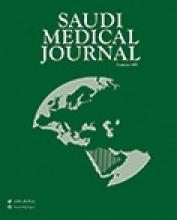1 June 2018 News Release Geneva - A new report from the World Health Organization (WHO) Independent High-level Commission on Noncommunicable Diseases (NCDs) calls for urgent action to address chronic diseases and mental health disorders. It demands high-level political commitment and the immediate scaling up of actions to address the epidemic of NCDs, the world’s leading causes of death and ill health.
Collectively, cancer, diabetes, lung and heart diseases kill 41 million people annually, accounting for 71% of all deaths globally, 15 million of which occur between the ages of 30 and 70 years. The report focuses attention on growing, but often neglected, challenges like mental disorders and obesity.
Time to deliver: report of the WHO Independent High-Level Commission on Noncommunicable Diseases
President of Uruguay, Dr Tabaré Vázquez, called on world leaders to “redouble efforts” to meet the Sustainable Development Goals target to reduce premature death from NCDs by one-third by 2030 and to promote mental health and wellbeing: “Preserving and improving people’s quality of life is a way of enhancing human dignity in order to make progress in terms of economic growth, social justice and human coexistence,” said Dr Vázquez, who presented the report to WHO Director-General Dr Tedros Adhanom Ghebreyesus in Geneva today. “Health is essential for peace and democracy. It is not a matter of spending a lot, but of making good investments.”
The Commission makes six recommendations in its report:
Heads of State and Government should take responsibility for the NCD agenda, rather than delegating it to ministers of health alone, as it requires collaboration and cooperation across many sectors.
Governments should identify and implement a specific set of priorities within the overall NCD and mental health agenda, based on public health needs.
Governments should reorient health systems to include NCDs prevention and control and mental health services in their universal health coverage policies and plans.
Governments should increase effective regulation, appropriate engagement with the private sector, academia, civil society, and communities.
Governments and the international community should develop a new economic paradigm for funding actions on NCDs and mental health.
Governments need to strengthen accountability to their citizens for action on NCDs and simplify existing international accountability mechanisms.
“We know the problem and we have the solutions, but unless we increase financing for NCDs, and demand all stakeholders be held responsible for delivering on their promises, we won’t be able to accelerate progress,” said Commission Co-chair Dr Sania Nishtar. “The NCDs epidemic has exploded in low- and middle-income countries over the last two decades. We need to move quickly to save lives, prevent needless suffering, and keep fragile health systems from collapsing.”
Fulfilling the promise of universal health coverage, to ensure all people everywhere can access quality health services without suffering financial hardship, is one of WHO’s top priorities. The Commission’s report will help guide countries as they make progress toward health for all and tackle both NCDs and infectious killers.
“WHO was founded 70 years ago on the conviction that health is a human right to be enjoyed by all people, and not a privilege for the few,” WHO Director-General Dr Tedros Adhanom Ghebreyesus. “The recommendations of this report are an important step towards realizing that right by preventing the suffering and death caused by noncommunicable diseases.”
By calling on Heads of State and Government to take ultimate responsibility for NCDs, the report, which was also published simultaneously in the medical journal The Lancet, recognizes the need to ensure that health ministries have the influence they require to ensure the issue is backed with the political will and funding it merits.
Delivering the report to the WHO Director-General is the first activity of the Commission, which will continue to provide high-level support to the NCD community by catalyzing action and financing, especially in countries.
On 27 September 2018, the United Nations General Assembly will host the Third High-level Meeting on NCDs in New York. The Commission’s report will help advise WHO as it prepares for this crucial occasion.
The Commission’s Co-chairs include the presidents of Finland, Sri Lanka and Uruguay, the Minister of Healthcare of the Russian Federation and Dr Sania Nishtar, a leading NCDs expert and advocate and a former federal minister of health from Pakistan. The Commission comprises health and development leaders from governments, civil society and business.
Available from: http://www.who.int/news-room/detail/01-06-2018-commission-calls-for-urgent-action-against-chronic-diseases
- Copyright: © Saudi Medical Journal
This is an open-access article distributed under the terms of the Creative Commons Attribution-Noncommercial-Share Alike 3.0 Unported, which permits unrestricted use, distribution, and reproduction in any medium, provided the original work is properly cited.






